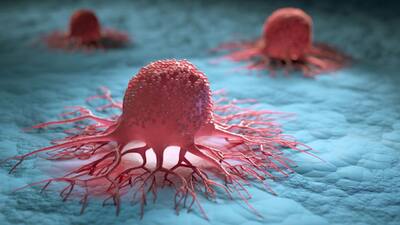Don’t Miss Out on the Latest Updates.
Subscribe to Our Newsletter Today!
Targeting Cancer With Immune Cells: A Changing Paradigm In Anti-Cancer Therapy

How is it that the more aggressive and widespread cancers of the blood cells get cured, whereas the smallest tumors of the solid organs, once they spread to other sites, become incurable? The answer lies in the approach.
The development of cancer is a multistep process, where a series of genetic changes within an affected cell allows uncontrolled multiplication of that single cell. If that cell arises from an organ such as tongue, breast or stomach-it grows as a lump or tumor which keeps growing in size if unchecked with subsequent spread to local and then distant sites-called metastasis. On the other hand, if any of the blood-forming cells go rogue, cancer spreads through the bloodstream and is widespread from the very outset. Despite the very aggressive nature of blood cancers, which manifest themselves as either leukemia (developing from immature cells), lymphoma, or myeloma (developing from more mature cells), they remain the most curable of all cancers. Cancers originating from individual organs, in contrast, can only be cured with surgery at early stages along with a combination of chemotherapy and/or radiotherapy.
Why Some Cancers Are Curable And Others Not?
How is it that the more aggressive and widespread cancers of the blood cells get cured, whereas the smallest tumors of the solid organs, once they spread to other sites, become incurable? The answer lies in the approach and understanding of the blood cancers, which were based on the identification of abnormalities within the cells compared to a more anatomical or structural approach for solid tumors. It was realized long back that our immune system is on constant surveillance- not only to fight infections but also to attack any cells in the body which show any sign of early cancer-like changes. This unique ability of these cells called T cells and Natural Killer (NK) cells are instrumental in preventing the development of cancers in the first place. The genesis of cancer lies in the ability of the cancer cells to escape from the grip of these sentry cells and establish themselves. This escape is often a combination of cancer cells camouflaging themselves so that they are not recognized by the immune cells and the inactivation of the vigilance system of the immune cells. When the cancer is reduced to very low levels, the same immune cells might regain their ability to attack the residual cancer cells again. Unfortunately, this process often fails, and the cancer cells grow back, once again in defiance of the immune surveillance.
Solid organs once removed from the body cannot regenerate on their own. However, bone marrow stem cells can grow from one cell to a billion cells and regenerate the complete blood system. Hence, very high doses of chemotherapy and radiotherapy followed by infusion of healthy bone marrow stem cells from an HLA-compatible family donor were used to treat end-stage leukemia in the early 1970s. A few of them were cured. This established the clinical practice of Blood and Marrow Transplantation (BMT). This was soon extended to all patients with blood cancer. It was soon realized that the cure of deadly blood cancers was not due to a high dose of chemotherapy and radiotherapy, but a unique effect of immune cells obtained from the donor. Even for patients in whom leukemia had recurred after a BMT, a simple infusion of white blood cells from the marrow donor could result in a cure. Thus, the concept of cellular therapy took shape in 1990.
Also Read
Cancer Treatments In The Modern Era
Twenty years down the line, the concept of treating cancers has shifted from using toxic chemotherapeutic drugs to manipulation of the immune cells to kill the cancer cells. Even, the field of solid tumors, which was reticent to such an approach for over 3 decades, has now accepted the true potential of these immune cells to make a difference in the outcome of the lung, kidney, bladder, and other cancers. Drugs have been developed to rejuvenate the immune cells to attack these cancers with new vigor. At the same time, advances in genetic engineering have made it possible to collect the patients' own immune cells and manipulate them to target certain blood cancers. The focus of research and treatment of cancer has now shifted from using mere chemicals to the enhancement of the immune system through various methods. While many use T cells for this purpose, our team has developed novel ways of employing NK cells for the same purpose. The field of solid tumors had barricaded itself for too long from the advances in the field of blood cancers using cells of the immune system. Now that the potential of cellular therapy in the treatment of cancer has been recognized, the possibilities seem endless. It remains to be seen as to how effectively we can unleash cellular weapons in the cure of cancer. The next ten years are going to be decisive.
(This article has been written by Dr. Sarita Jaiswal, Dr. Suparno Chakrabarti, Department of BMT and Hematology, Dharamshila Narayana Super-specialty Hospital, New Delhi.)


